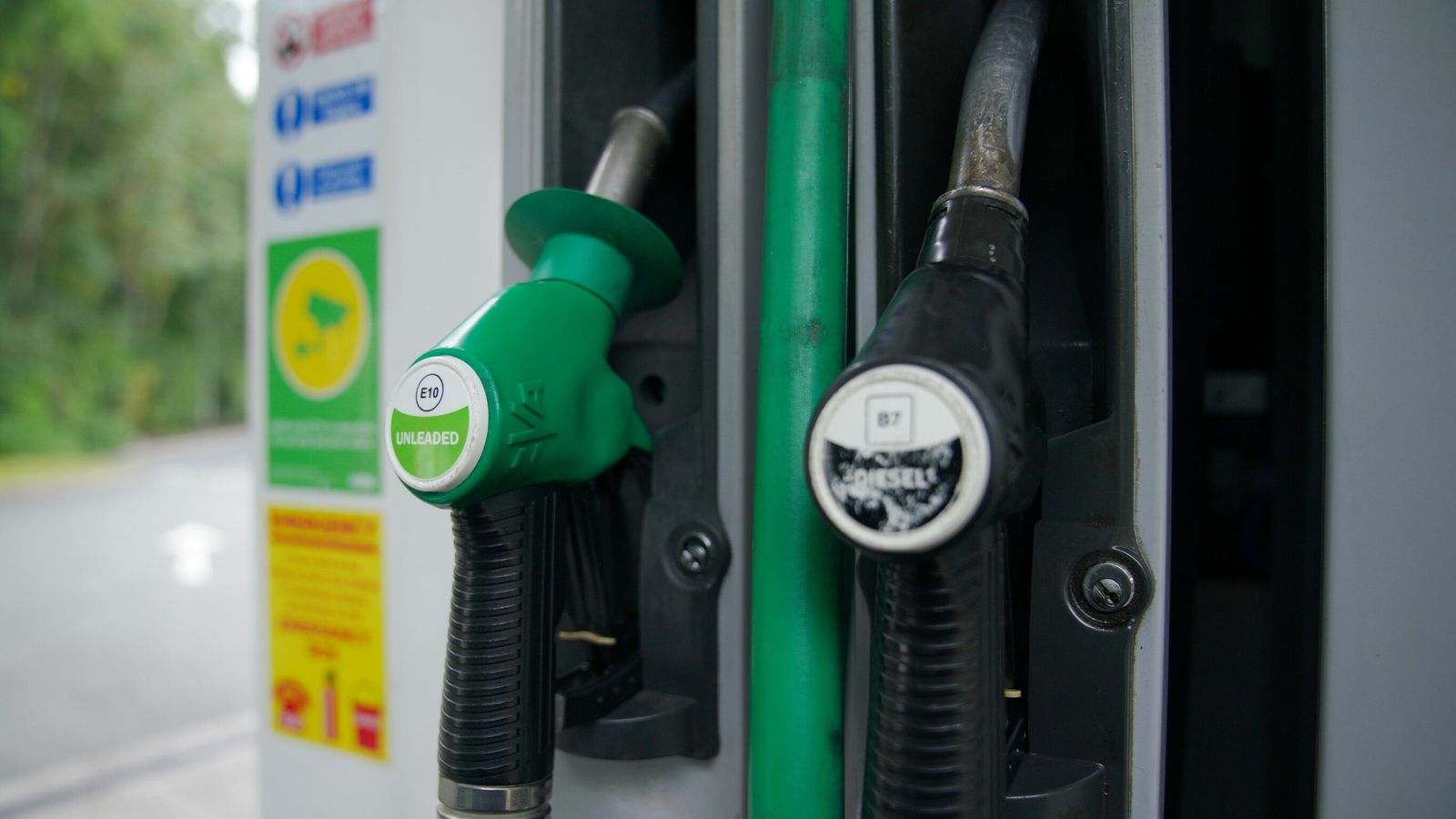Drivers paid higher pump prices after supermarkets increased margins – watchdog

Increased supermarket profit margins led to drivers paying an extra 6p per litre for fuel last year, an investigation has found.
Asda has also been fined £60,000 for a failure to provide information when required, the Competition and Markets Authority (CMA) added.
It comes in the regulator’s final report in its year-long investigation into the fuel market.
Asda was issued with two £30,000 fines as it failed to respond completely to a compulsory request for information, the CMA said, and sent a representative to attend a mandatory interview who wasn’t able to provide evidence on topics they had advance notice of.
As part of the investigation, the watchdog examined whether there was “any failure in competition” which was leaving consumers paying higher fuel prices than they should be.
Read more:
Sainsbury’s and Asda rapped by regulator over ‘anti-competitive agreements’
Cost of living: Supermarket bosses defend food prices and deny profiteering
It determined that competition has “weakened” as Asda and Morrisons decided to increase the amount of money it makes on fuel and Sainsbury’s and Tesco have priced by comparison to local competitors rather than responding to cost movements in the market.
There was, however, no evidence to suggest that there has been “cartel behaviour”, the regulator said, and there are no plans to open an enforcement case against supermarkets.
Instead, the CMA has said there should be a new, legally mandated system, requiring fuel providers to publish live data on fuel charges. This would enable consumers to see petrol station costs in real time on their phones or satnavs.
Advertisement
The government has said it would support this measure and change the law to force retailers to provide up to date price information.
A new fuel monitoring body has also been proposed by the CMA. Such a body would establish the fuel finder scheme.
The CMA had previously said supermarket fuel prices were roughly 5p more expensive per litre in 2022 than pre-pandemic levels and that factors beyond the invasion of Ukraine have impacted the price customers are paying at the pumps and weak competition has helped drive increases.
On Monday morning, the Petrol Retailers Association told Sky News that independent forecourt operators have struggled to be competitive against supermarkets.
In March of this year, the CMA identified 13 areas of concern as part of Asda‘s plan to buy Co-op petrol stations and requested the supermarket buyer take remedial action.
A similar investigation into competition and food prices is being done by the CMA.
Chancellor Jeremy Hunt last week met with regulators, including the CMA, in an effort to push suppliers to reduce prices.
An Asda spokesperson said, “Despite record inflation, we have carefully managed our business to ensure Asda was the cheapest traditional supermarket for both groceries and fuel throughout the period reviewed by the CMA and this position is unchanged.”
“The penalty notices relate to two individual alleged technical breaches in the way information was shared with the CMA over a 12-month period, during which time a significant number of documents were shared with the CMA to aid their study and we engaged fulsomely with their enquiries.”
A Morrisons spokesperson said it is “extremely competitive” on fuel pricing. “Although margins have increased, they remain very low.”
“The calculation of margin on fuel does not include the costs of running a fuel business – such as energy, rents and payroll – which have substantially increased through the cost of living crisis while volumes have declined since COVID,” the spokesperson said.
“The modest increase in the profitability in fuel has been an important part of our ability to invest in holding and lowering prices in store.”